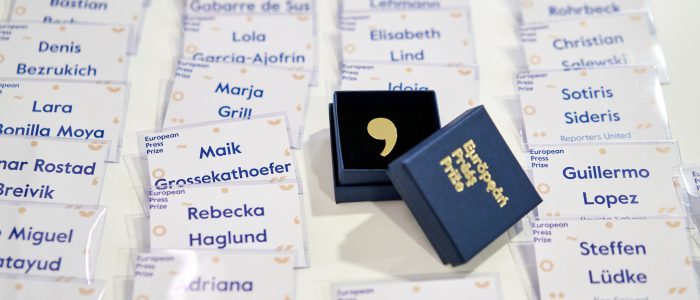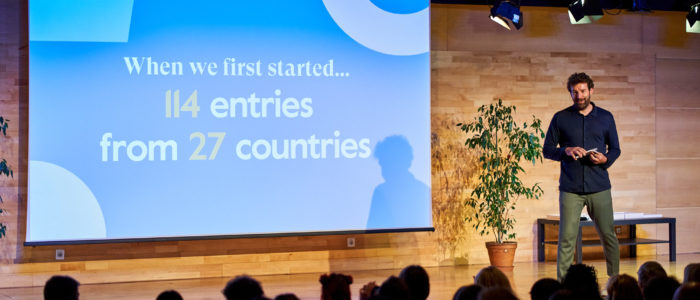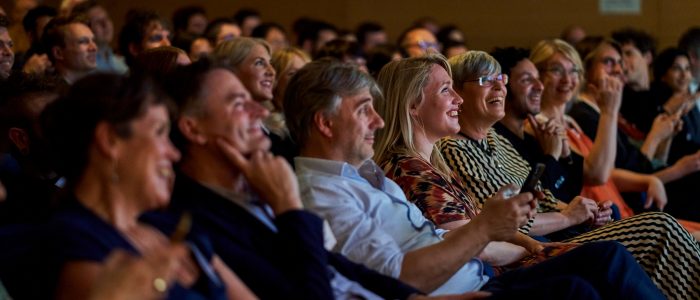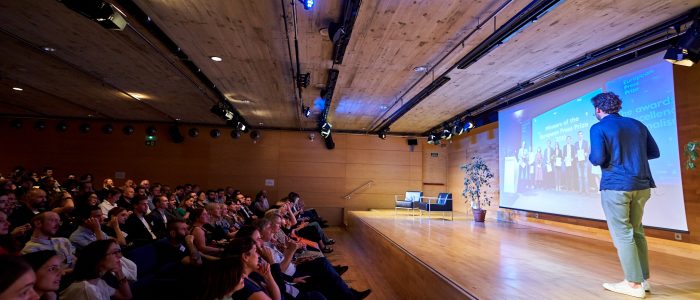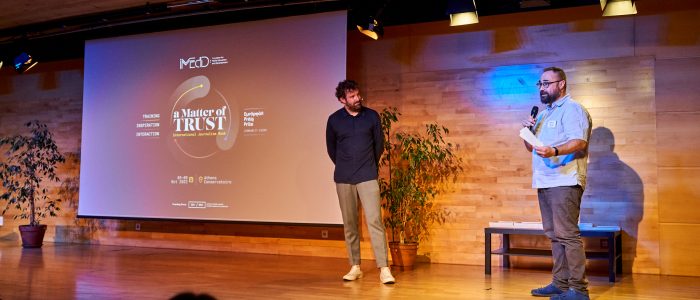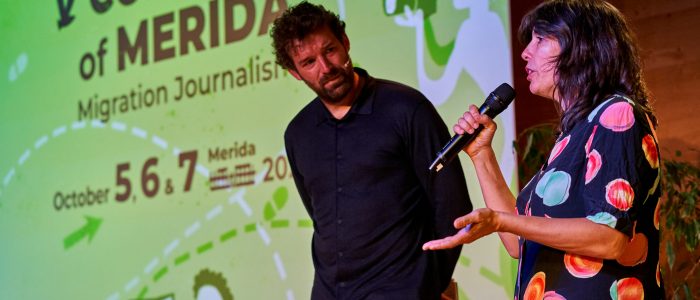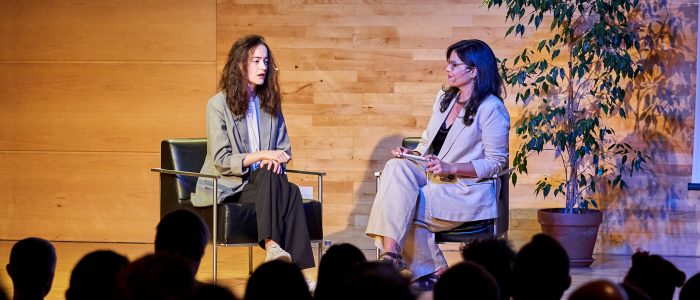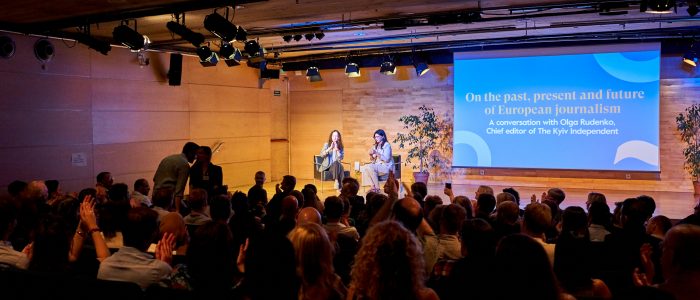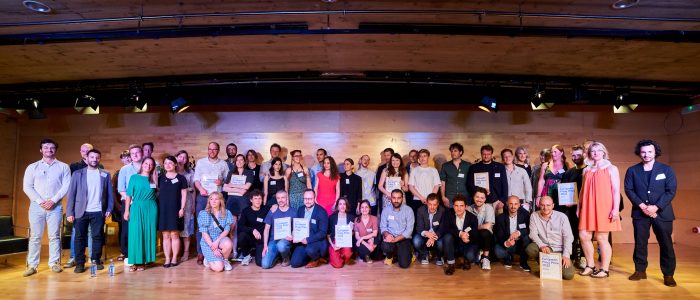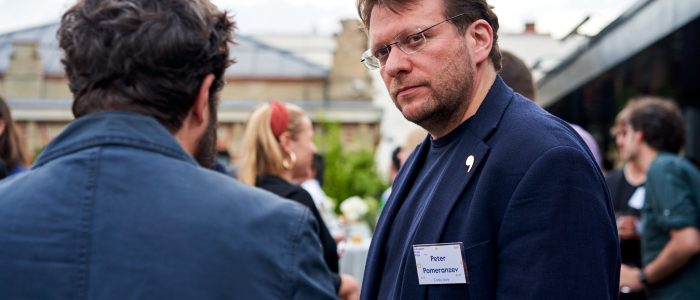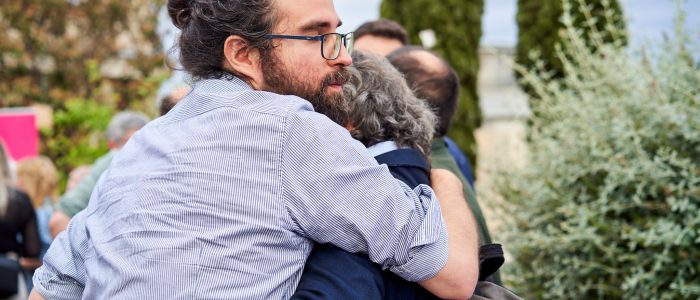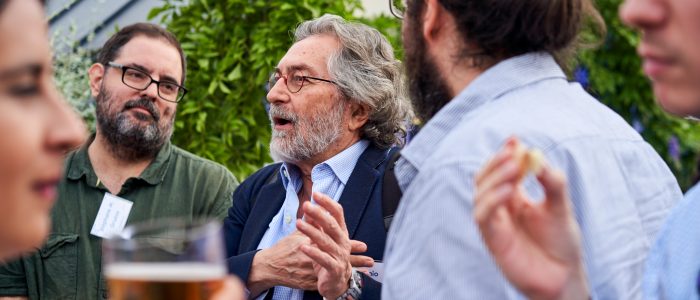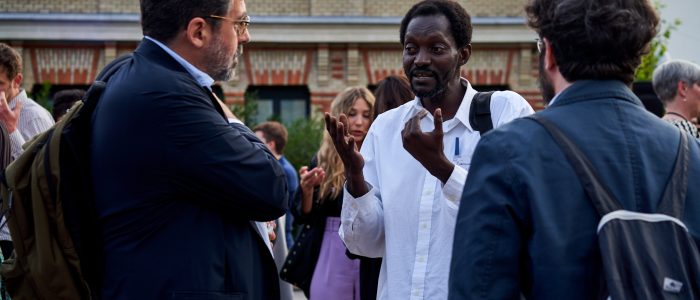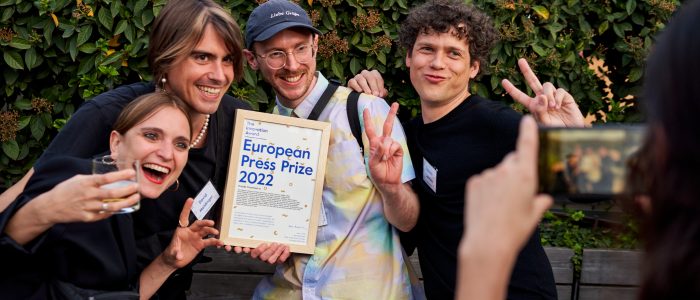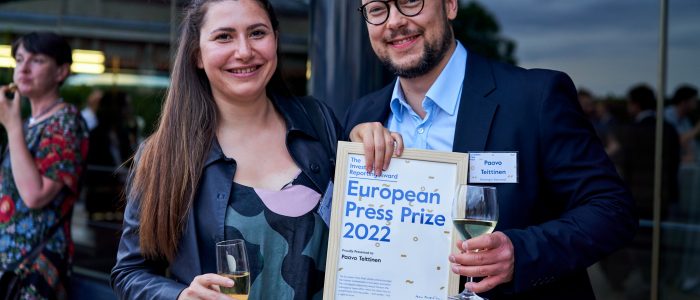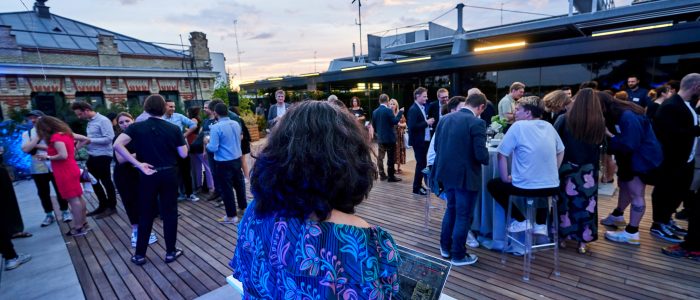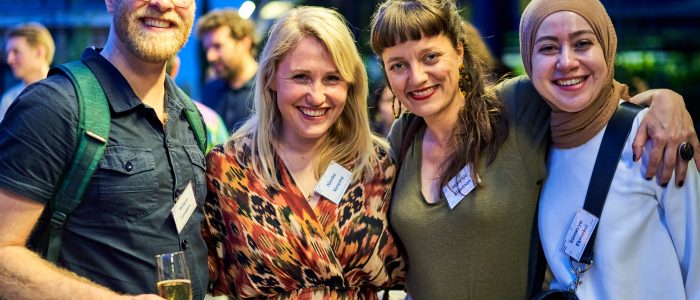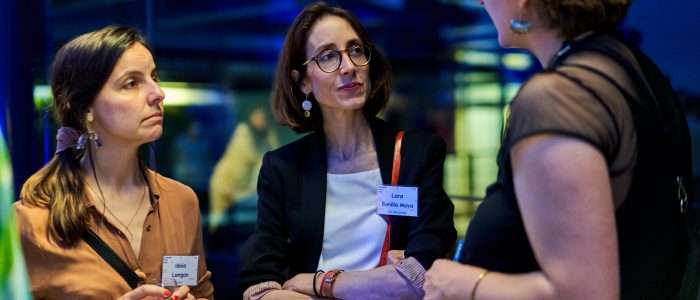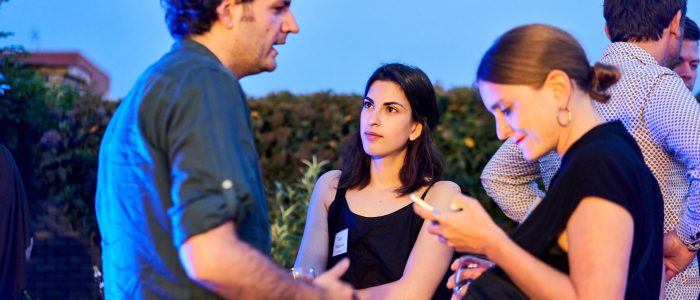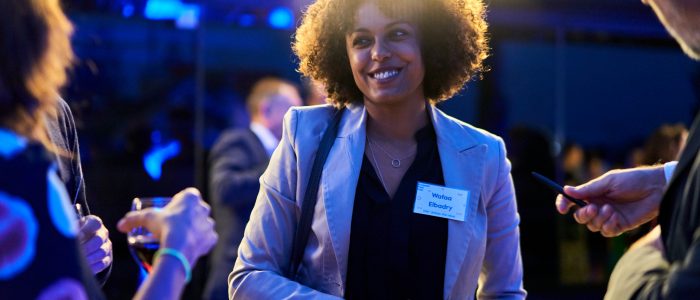The winners of the European Press Prize 2022
We are delighted to announce the winners and runners-up of the European Press Prize 2022.
Our Award Ceremony, held in Madrid on June 2, was an important milestone, as it marked the 10th anniversary of the birth of our organization. Also present at the event, as a speaker, was the Ukrainian journalist Olga Rudenko, editor-in-chief at the Kyiv Independent.
A collection of stories to understand our times
This year’s stories tackle topics that are crucial for our cultural space, and for Europe’s economical and democratic systems: the financialization of the housing market; the police response to human trafficking; the gender bias in the field of medicine; the personal struggle of a victim of torture facing his perpetrator; and the collapse of overarching narratives that helped make sense of the reality around us.
Cities for Rent: Investigating corporate landlords across Europe, winner of the Innovation Award, explores the intricate world of corporate housing, dissecting the financialization system that turned housing into one of the most profitable markets – at the expense of the citizens.
The investigation is closed, winner of the Investigative Reporting Award, exposes serious, widespread irregularities and misconduct in how the Finnish police deal with human trafficking cases.
The Distinguished Reporting Award went instead to What Guantánamo made of them, the moving story of a victim of torture in the American prison of Guantánamo, Mohamedou, facing his torturer to seek closure and to find answers to his many questions.
The Public Discourse Award, previously the Opinion Award, was given to Memory in the age of impunity, a compelling piece that explores why certain stories fail to capture our attention. The collapse of connected storylines calls for a rethinking of what binds us, from Belarus to the Philippines.
Last but not least, the Special Award was assigned by the Panel of Judges to Woman’s body, man’s medicine, which investigates the reasons for the lack of knowledge on women’s bodies, connecting it to gender inequality in medical research.
Ten years supporting and celebrating journalism
The European Press Prize was born ten years ago, in Amsterdam, thanks to the commitment of seven independent European foundations, with the goal of celebrating, supporting, and protecting journalism.
In the last ten years, the Prize has collected almost 6,000 entries and awarded projects and journalists that, with their stories, helped us understand the Europe we live in, contributing to strengthening its democratic values, and sometimes managed to reach beyond the EU’s borders.
Lars Munch, Board Member of the Prize and Chairman of the Politiken-Foundation: “Our aspiration was to raise awareness on quality journalism. When I look back at the impressive list of laureates and prize winners over the last 10 years, I think we’re on the right track. The work will continue. More than ever, we need quality journalism as a counterweight to disinformation, lies, fake news, and ignorance.”
Yoeri Albrecht, Board Member of the Prize and Director of De Balie: “We set up the European Press Prize ten years ago in De Balie, in Amsterdam, to shed light on the amazingly diverse, brave, important, and well-produced journalism that flourishes in every corner of our continent. We hoped that by honoring it, good quality journalism becomes more appreciated, and widely consumed. Journalism is vital for the survival of democracy and the rule of law.”
A special speaker: Olga Rudenko
Present at the event as a speaker and as a guest, was Olga Rudenko, editor-in-chief of the Ukrainian newspaper The Kyiv Independent.
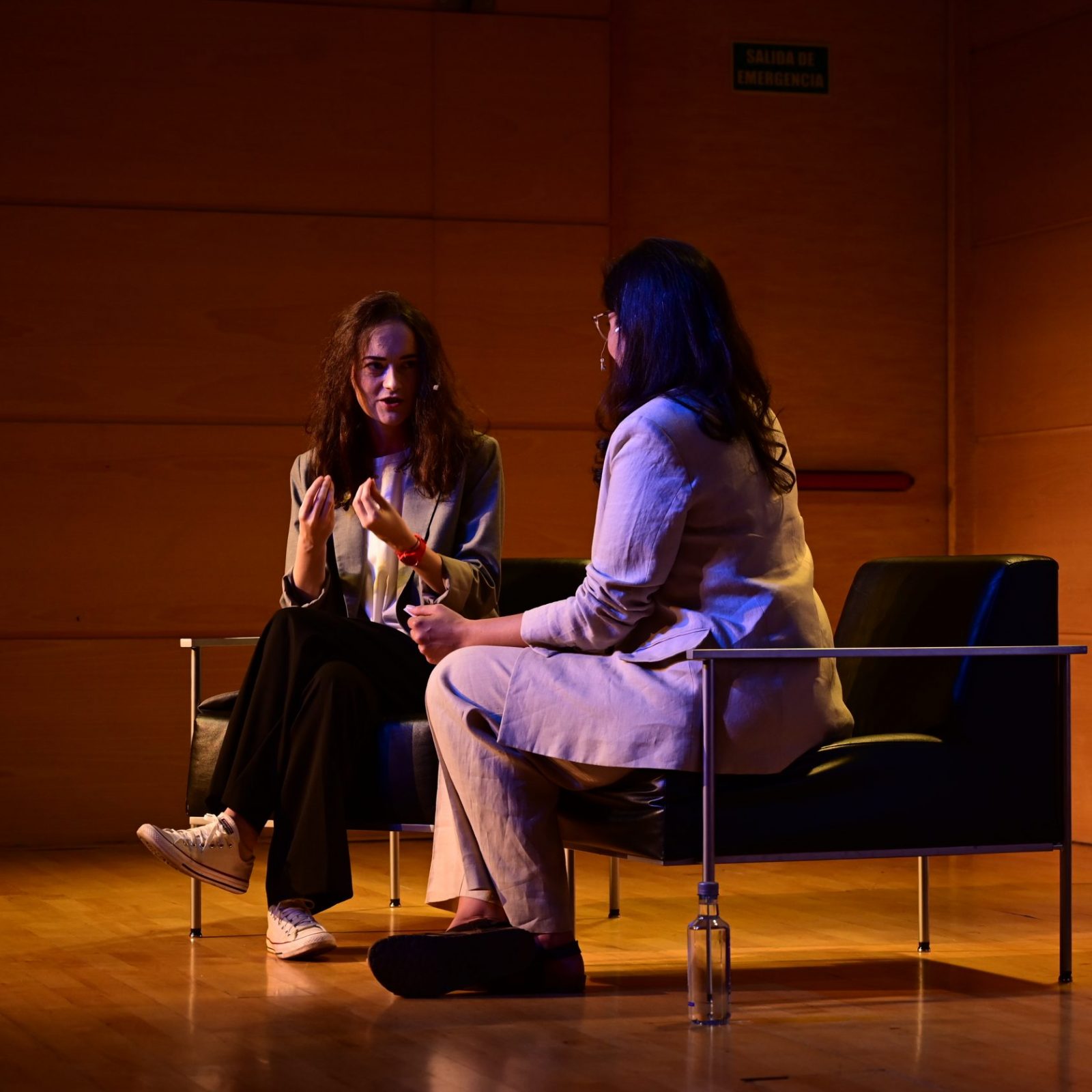
Rudenko spoke at length, together with Clara Jiménez Cruz, CEO and co-founder of Maldita.es, about the importance and direction of journalism during these uncertain times.
Announced live, from Madrid
As of habit, the location of the Prize award ceremony rotates between different European capitals and, for this year, the choice fell on Madrid.
This ceremony has special significance because it marks the tenth anniversary of the Prize, but also because it represents a return to normality, after two years during which the coronavirus pandemic complicated the organization of this event.
Journalists, activists, judges, and the Laureates of the Prize gathered at La Casa Encendida for an evening made not only of awards but also of conversations on important topics that touch the journalistic world. One above all, the Ukraine invasion and subsequent war.
The European Press Prize Director Thomas van Neerbos: “Being part of the prize from the beginning, it has been one of the great joys of my life to be in the room with the best minds and hearts in European journalism, assessing stories from different perspectives – reading all those carefully chosen words. 10 years, 6000 articles submitted, 4000 words each on average. That’s 24 million words of quality journalism. Can you imagine the impact these words must have had on our Europe?”
THE PRIZE 2022 AWARDS
THE DISTINGUISHED REPORTING AWARD
RUNNER-UP
One in every five Polish vets has considered suicide: “I broke down on December 23rd when I had to put down nine animals in one day.” by Anna Kiedrzynek, published in ‘Duży Format’ by Gazeta Wyborcza (Poland)
WINNER
What Guantánamo made of them by Bastian Berbner, John Goetz, published by DIE ZEIT (Germany)
THE INNOVATION AWARD
RUNNER-UP
This is us by Lisa Caspari, Philipp Daum, Philip Faigle, Ileana Grabitz, Mark Heywinkel, Moritz Klack, Marlene Knobloch, Julia Kopatzki, Lucie Liu, Annabelle Seubert, Frida Thurm, Vanessa Vu, Julius Tröger, Dr. Andreas Loos, Sascha Venohr, Christoph Rauscher, Thilo Kasper, Axel Rudolph, Michael Pfister, Sebastian Berger, Simon Koy, Kalpesh Lathigra, Thomas Pirot, Julia Sellmann, Marzena Skubatz, Thomas Victor, Lucas Wahl, Mona Wetzel, published by ZEIT ONLINE (Germany)
WINNER
Cities for rent: Investigating corporate landlords across Europe by Jose Miguel Calatayud, Adriana Homolova, Hendrik Lehmann, Brigitte Alfter, David Meidinger, Benedikt Brandhofer, Nikolas Zöller, Alexandra Siebenhofer, Steven Vanden Bussche, Gaby Khazalová, Bo Elkjær, Alexander Abdelilah, Sotiris Sideris, Lois Kapila, Alice Facchini, Peter Hendriks, Steinar Rostad Breivik, Micael Pereira, Peter Sabo, Manuel Gabarre, Christian Zeier, Catherine McShane, Nikolas Leontopoulos, Alexia Barakou, Moritz Wienert, Benedikt Hebeisen, Christoph Trautvetter, Elisabeth Lind, Jakub Nakládal, Mathieu Périsse, Anna Thewalt, Helena Wittlich, Sinan Recber, Sidney Gennies, Manuel Kostrzynski, Lorenzo Bagnoli, Hans Jordheim, Sara Pinho, and the editorial and data journalism staff of the media and publishing partners published by Arena for Journalism in Europe (Europe), ORF (Austria), Apache (Belgium), Deník Referendum (Czech Republic), Mediapart (France), Der Tagesspiegel (Germany), AthensLive (Greece), Reporters United (Greece), Dublin Inquirer (Ireland), IrpiMedia (Italy), E24 (Norway), Expresso (Portugal), elDiario.es (Spain), Reflekt (Switzerland), Republik (Switzerland), and other publication partners: Ctxt.es (Spain), Follow The Money (The Netherlands)
THE INVESTIGATIVE REPORTING AWARD
RUNNER-UP
Huge quantities of Chinese cigarettes smuggled into Ukraine by Anna Myroniuk, Andrei Ciurcanu (partner at OCCRP), published by Kyiv Post, OCCRP (Ukraine)
WINNER
The investigation is closed by Paavo Teittinen, published by Helsingin Sanomat (Finland)
THE PUBLIC DISCOURSE AWARD
RUNNER-UP
Belarus: escaping Lukashenko’s regime at any cost by Denis Vejas, published by ereb (France), NARA (Lithuania)
WINNER
Memory in the age of impunity by Peter Pomerantsev, published by Coda Story (Georgia)
THE SPECIAL AWARD
WINNER
Woman’s body, man’s medicine by Lara Bonilla, Ricard Marfà, Idoia Longan, published by Diari ARA (Catalonia, Spain)
Contact [email protected] for republishing articles or more information from either bureau or laureates.
The European Press Prize 2022 Award Ceremony
On June 2, the European Press Prize community will gather in Madrid for our annual Award Ceremony, which will mark the 10th anniversary of the creation of the Prize. During the Ceremony we will announce the winners of our 2022 Awards. Among the speakers at the event will be the Ukrainian journalist Olga Rudenko, editor-in-chief at The Kyiv Independent.
Since 2013, the yearly European Press Prize Award Ceremonies have been held in Berlin, Warsaw, Budapest, Prague, Copenhagen, Amsterdam, and London. After two years in which the Covid-19 pandemic forced the Prize winners announcement online, the 2022 Award Ceremony goes back to being an occasion to bring our community together in person and, this year, Madrid will be our location.
This Ceremony at La Casa Encendida will be a moment of celebration for this year’s European Press Prize winners. It will be hosted by Clara Jiménez Cruz, co-founder of the winner of our Innovation Award 2021 Maldita.es.
A special speaker: Olga Rudenko
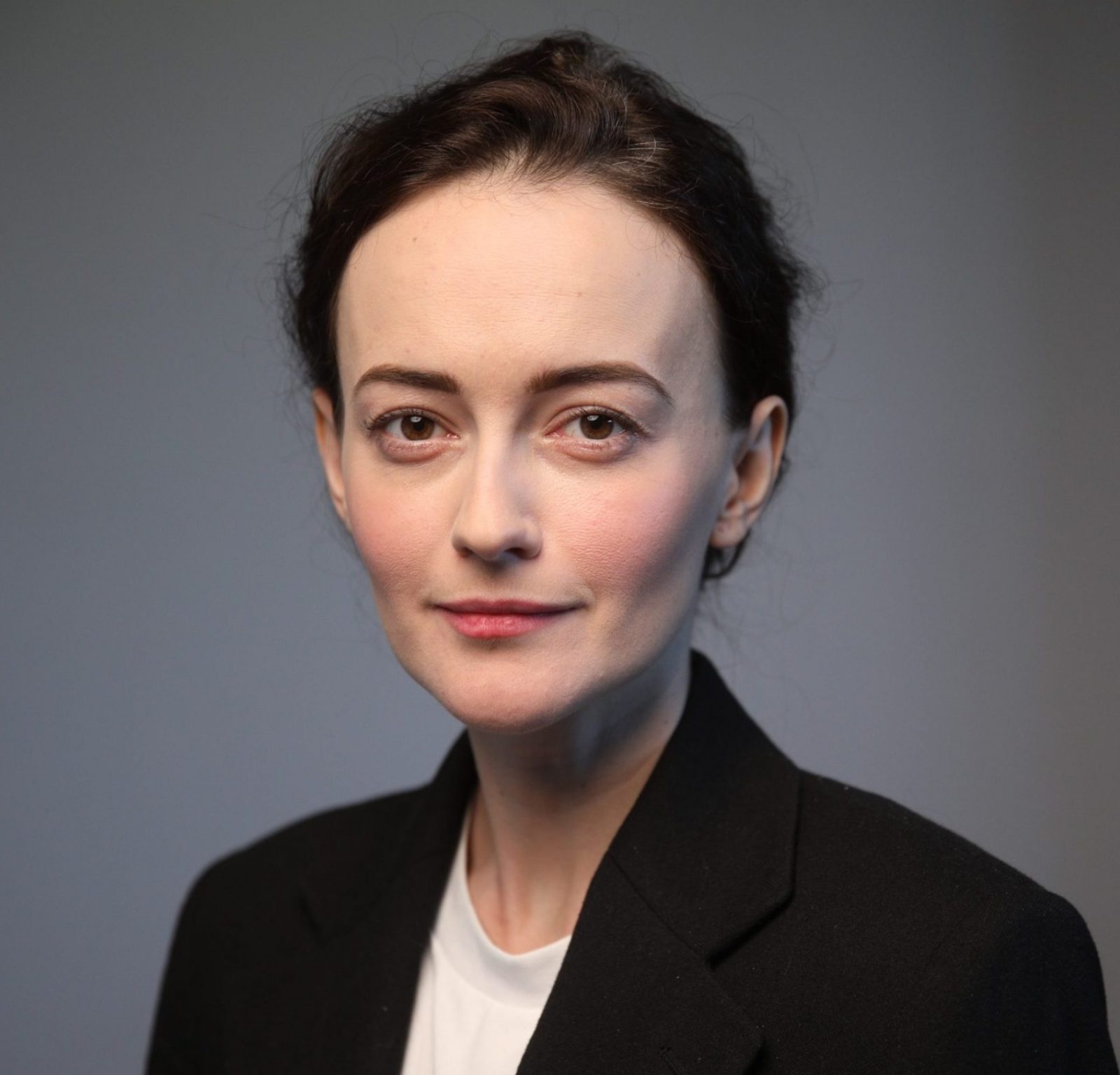 Present at the event as a speaker and as a guest will be Ukrainian journalist Olga Rudenko, editor-in-chief of The Kyiv Independent.
Present at the event as a speaker and as a guest will be Ukrainian journalist Olga Rudenko, editor-in-chief of The Kyiv Independent.
The Kyiv Independent is an award-winning media start-up launched in November 2021 by the former editorial team of the Kyiv Post. Since Putin’s invasion on February 24, the Kyiv Independent has become the world’s primary source for reliable English-language journalism on that war.
On June 2nd, Olga will speak about the current reality and possible futures of European journalism: where we stand, where we want to go, and how we get there.
Ten years of awarding excellent European journalism
The European Press Prize Award Ceremony 2022 will mark ten years since the creation of the Prize. Ten years ago, in 2012, representatives of seven independent European foundations with strong media connections met in De Balie, a venue for contemporary arts, politics, and culture in Amsterdam. With a shared concern for the state of the public debate and access to quality information, these organisations founded the European Press Prize. Since then, the Prize has been devoted to finding excellent journalism in Europe and beyond; to celebrating, supporting, and protecting it.
In its first ten years of existence, the Prize has collected almost 6,000 entries. Among them, are projects and journalists that, with their stories, shaped and represented the recent history of Europe.
Our new Judge: Can Dündar
This year, our Panel of Judges welcomed a new member: Turkish journalist Can Dündar.
Can Dündar is a Turkish journalist, documentary filmmaker, and book author. He was editor-in-chief of the Turkish newspaper Cumhuriyet, and was sentenced in absentia to 27 years in prison after publishing a story on Turkish intelligence’s arms trafficking to Syrian radical Islamists. After being arrested in 2015, spending three months in jail, and surviving an assassination attempt, Dündar fled his home country and settled in Germany. Now, he is editor-in-chief of the bilingual journalistic platform Özgürüz and a columnist for Die Zeit.
Last April he joined us in Perugia during the International Journalism Festival 2022 and told us why he thinks awards are important for journalists.
This year’s European Press Prize was also the last one seeing the participation of Sylvie Kauffmann, editorial director of the French newspaper Le Monde, in our Panel of Judges. We want to thank her for her invaluable contribution to the European Press Prize.
Interested in covering the event?
We are open for press accreditation and inquiry over single interviews. Contact [email protected] for expressions of interest. The seats number is limited due to the rules of the hosting location.


